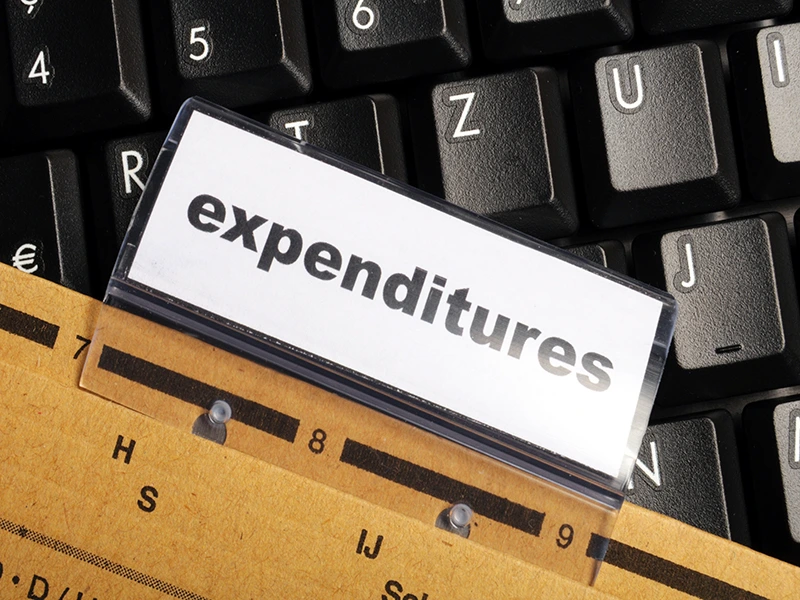
Every organisation incurs various forms of expenditure while carrying out its operations. Some of the common reasons why organisations incur expenses are for generating higher revenue, adopting different investment strategies, maintenance, business expansion plans, etc. All of these help the organisation in the long run and therefore, it is imperative of the organisation to incur the associated expenses.
When companies chalk out their budgets, they often categorise it into two parts, expenses and receipts. Expenses are further subdivided into revenue and capital expenses. Here, we will learn about the basic meaning of each of these while trying to understand the factors that differentiate them.
What is capital expenditure?
Capital expenditure or CapEx are the funds used by a company in acquiring, upgrading and maintaining its fixed assets. The assets included in this category are clubbed under plants, property and equipment) which mainly consist of machinery, workstations, infrastructure, etc. These assets are long term and expected to offer productivity for multiple accounting periods.
When a company invests in assets with the intent of profit generation in the near to long future, the associated expenses are capital in nature. With capital expenditure, companies can buy new machinery or equipment or use the funds for maintenance of existing assets.
Some of the common examples of capital expenditure are –
- Office buildings (expenses towards acquisition of a building/s)
- Machinery and equipments for manufacturing units
- Equipment at the workplace, including computers, printers, office furniture, appliances, etc.
- Patents, copyrights, trademarks, etc.
Since these forms of assets provide income-generating opportunities to a company for a certain period, companies cannot take out the total cost of such assets in the year of expenditure. Instead, the company must work towards recovering the cost of such assets through annual depreciation for the years that the asset is being used for the company’s benefit.
What is revenue expenditure?
Revenue expenditure is also known as Income Statement expenditure. These expenses are incurred on a day-to-day basis primarily for maintaining a company’s earning capacity. The costs in revenue expenditure are associated with those assets which are not capital in nature and are not expected to fetch financial benefits during the ongoing accountable year. Companies incurring this type of expenditure must recognise such costs and include them on their Income Statement in the same year that these are incurred.
Revenue expenditures can be further categorised as –
- Expenses incurred for revenue generation
These are day-to-day expenses that are essential for running a business efficiently.
- Expenses towards maintenance of assets that are involved in revenue generation
Examples of these expenditures are repair and maintenance of assets that are expected to generate revenue in the current accounting year and beyond.
Examples of revenue expenditures are –
- Compensation
- Supply costs
- Marketing and advertising expenses
- Commissions
- Telecom expenses
- Salaries
How are capital and revenue expenditures different?
An easy way to understand the difference between revenue and capital expenditures is to take the example of a storage facility purchased by a company. Here, the funds needed for purchasing the storage facility are categorised as capital expenditure. However, any painting and refurbishing costs come under revenue expenditure as these do not help the asset fetch more income for the company.
Key Difference between Capital Expenditure and Revenue Expenditure
| Points of Difference | Capital Expenditure | Revenue Expenditure |
| Definition | Expenses incurred for acquiring, maintaining or expanding a company’s revenue-generating assets. | Expenses incurred for maintaining a company’s earning capacity. |
| Time horizon | Capital expenditures help in achieving long-term objectives. | Revenue expenditures are meant for short-term requirements. |
| Recurrance | Capital expenditures are often non-recurring in nature | Revenue expenditures are generally recurring in nature. |
| Value addition | Capital expenditures help in adding value to existing assets. | Revenue expenditures may not necessarily add value to existing assets. |
| Representation in financial statements | Capital expenditures are stated in a company’s balance sheet. Some portions may also be mentioned in the Income Statement of a company. | Revenue Expenditures form part of the Income Statement of a company. |
| Benefits | Capital expenditures offer long-term benefits. | Revenue expenditures, provide short-term benefits. |
| Capitalisation | Yes | No |
Conclusion
Both capital and revenue expenditure are crucial for a company to achieve sustainable profitability. Both these expenses help companies to increase their efficiency, one being used for uninterrupted operations while the other for long-term business continuity.
Business enterprises must work towards implementing effective strategies for regular monitoring of these expenses, such that the overall business profitability increases over time.
FAQs
Capital expenditures or CAPEX form a company’s long-term expenses, whereas operating expenses or OPEX are a company’s day-to-day expenses. OPEX includes salaries, rent expenses, property taxes, cost of goods sold (COGS), etc
Capital expenditure can help a business improve its efficiency and allow it to gain a competitive edge.
Revenue expenses can be categorised into direct and indirect expenses. Direct expenses are directly associated with production and some examples include direct wages, rent, electricity cost, etc. Indirect expenses are related to the sales and distribution of finished products or services. These include repair, commission, depreciation, taxes, etc.
Capital expenses can be divided into expenses incurred for lowering costs, expenses incurred for boosting earnings, and expenses that are non economic.
Capital expenditure can be calculated as Net increase in PP&E + depreciation cost.



























